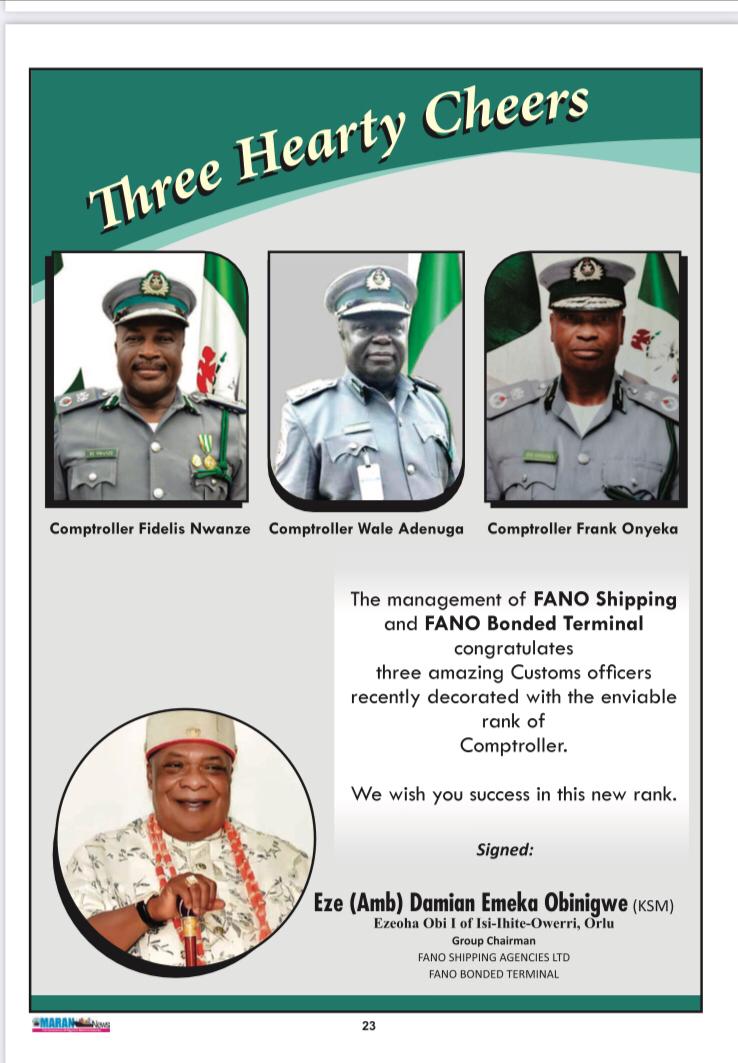By Sandra Chukwunyere
In a notable shift from earlier criticisms, Hon. Ibrahim Tanko, National Coordinator of the 100% Compliance Team of the National Association of Government Approved Freight Forwarders (NAGAFF), has publicly commended the Nigeria Customs Service for its significant improvements on the B-Odogwu customs transaction platform.
According to the statement signed by Tanko, the B-Odogwu platform, which was initially plagued by frustrating delays and technical hitches, has now stabilized, making it a “commendable feat” and “wonderful” development.
Recall that Tanko was at the forefront of protests against the delays occasioned by the transition from the Nigeria Integrated Customs Information System II (NICIS II) to the indigenous B-Odogwu platform. However, he revealed that behind-the-scenes efforts by the Customs Service, under the leadership of Comptroller General Dr. Adewale Adeniyi, led to the platform’s fine-tuning and eventual stabilization.
 To test the platform’s efficiency, Tanko used his own cargo consignments – 16 containers – as a litmus test. Initially, he experienced weeks of delay and rising demurrage due to the inability to transmit documents across systems. However, with recent updates and policy shifts, including the approval granted by the Deputy Comptroller General in charge of Tariff and Trade (T/T) for Area Commands to approve Form M for direct B-Odogwu transmission, the situation drastically improved.
To test the platform’s efficiency, Tanko used his own cargo consignments – 16 containers – as a litmus test. Initially, he experienced weeks of delay and rising demurrage due to the inability to transmit documents across systems. However, with recent updates and policy shifts, including the approval granted by the Deputy Comptroller General in charge of Tariff and Trade (T/T) for Area Commands to approve Form M for direct B-Odogwu transmission, the situation drastically improved.
Tanko disclosed that as soon as he transmitted his Form M, the PAAR was issued in less than 24 hours, a development he described as a significant improvement.
He praised CGC Adeniyi for his visionary leadership and patriotic push to indigenize Nigeria’s Customs transaction platform, describing him as a “true professional.”
Tanko called on other freight forwarders and importers to exercise patience and support the platform’s growth, urging them to show “utmost restraint” as the platform continues to improve.

” The B-Odogwu platform was introduced by the Nigeria Customs Service as part of efforts to localize and digitize customs processes, reduce reliance on foreign service providers, and improve trade facilitation”
With the platform now stabilized, stakeholders in the industry are optimistic that it will enhance efficiency, reduce costs, and improve the overall experience for importers and freight forwarders.
















